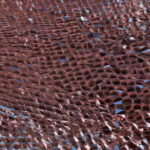AI Revolutionizing Fertility Treatments at UZ Brussel
Artificial intelligence (AI) has been making waves in various industries, and the field of fertility treatments is no exception. At UZ Brussel, a leading hospital in Belgium, new AI technology is revolutionizing the way fertility treatments are conducted, offering faster results and significantly reducing the number of missed sperm cells in Testicular Sperm Extraction (TESE) procedures.
TESE is a procedure often used for men who have no sperm present in their ejaculate due to a blockage or a lack of sperm production. During TESE, a small amount of testicular tissue is removed in order to retrieve sperm for use in assisted reproductive techniques such as in vitro fertilization (IVF). However, the process of identifying and extracting viable sperm cells can be labor-intensive and time-consuming, leading to potential missed cells and a longer overall procedure time.
With the integration of AI technology at UZ Brussel, the TESE procedure has been streamlined and enhanced. By utilizing AI algorithms to analyze testicular tissue samples in real-time, embryologists and reproductive specialists are able to quickly and accurately identify and isolate individual sperm cells with a much higher level of precision than traditional manual methods. This not only saves valuable time during the procedure but also significantly reduces the likelihood of missing viable sperm cells, ultimately improving the success rates of fertility treatments.
One of the key advantages of AI-assisted TESE procedures is the speed at which the technology can process and analyze large amounts of data. What may have taken hours for a human embryologist to manually examine and identify sperm cells can now be accomplished in a fraction of the time with the help of AI. This not only increases the efficiency of the TESE procedure but also allows for more timely and effective treatment decisions to be made, ultimately benefiting the patients undergoing fertility treatments at UZ Brussel.
Furthermore, the use of AI technology in fertility treatments is not limited to just TESE procedures. AI-powered tools and software are being developed and implemented in various aspects of assisted reproductive technologies, from embryo selection and cryopreservation to predicting optimal times for embryo transfer. The potential for AI to transform and optimize the field of reproductive medicine is vast, offering new possibilities for improving success rates and patient outcomes.
In conclusion, the integration of AI technology at UZ Brussel is a game-changer for fertility treatments, particularly in the realm of TESE procedures. By harnessing the power of AI to enhance the accuracy, efficiency, and speed of sperm cell identification and extraction, UZ Brussel is at the forefront of innovation in reproductive medicine. As AI continues to advance and evolve, the future of fertility treatments looks brighter than ever, offering hope to individuals and couples seeking to start or expand their families.
fertility, AI technology, UZ Brussel, TESE procedures, reproductive medicine












